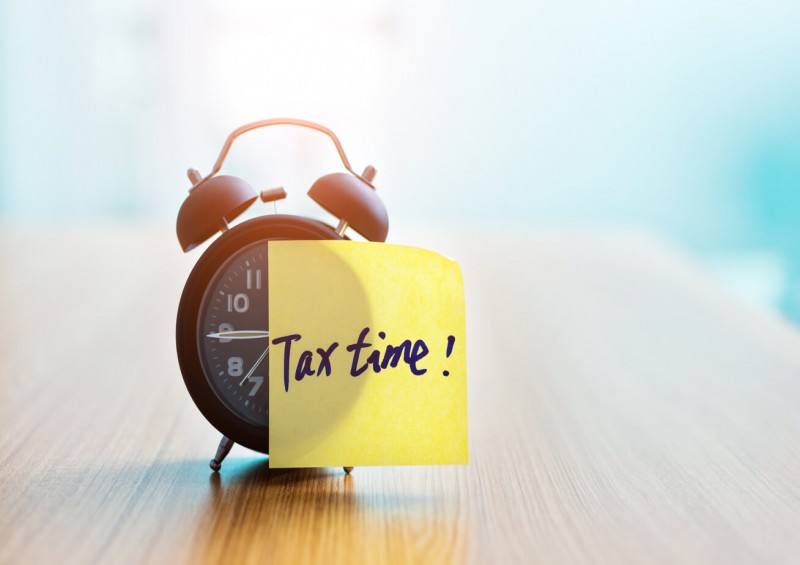5 Things to Do Before the End of the Tax Year

The tax year ends on the 5th of April each year and the new tax year begins on the following day, and if you haven’t already, you still have some time to make the most of it!
Using our handy tips of things to do before the end of the tax year, you will be able to maximise your savings while minimising the amount of tax you need to pay.
#1. Use as much of your ISA allowance as you can
The Individual Savings Account (ISA) allowance for the 2019 to 2020 tax year is £20,000, and you should always try to make the most of it each term (it is expected to remain at £20,000 for the 2020-2021 tax year).
The amount you can put in your ISAs resets at the end of each tax year and you aren’t able to carry any leftover allowance to the next year, so it’s important to use as much of it as you can.
You can choose to split your ISA allowance how you like and there are a range of options available, including Cash ISAs, Stocks and Shares ISAs, Innovative Finance ISAs, and more specific ones like Lifetime ISAs.
To open an ISA, you must be:
- A UK resident
- Over 16 for a Cash ISA
- Over 18 for a Stocks and Shares or Innovative Finance ISA
- Over 18 and under 40 for a Lifetime ISA
Read more: The Best Savings Accounts Available in the UK
#2. Top up your pension
The amount you can put in your pension each tax year before it becomes subject to tax – known as your annual allowance – is capped at £40,000 in the UK between you and your employer (as you will both be paying into it).
Whether you’re a fresh-faced 22-year-old or an experienced worker looking to retire in the next few years, it’s important that you make the most of your pension pot so that you have the most comfortable retirement possible when the time comes.
Read more: Saving for Retirement: Pensions and Alternatives
Unlike your ISA allowance, if you don’t maximise the £40,000, you are able to carry the unused pension annual allowance forward up to three years.
Everyone in the UK is entitled to a tax-free personal allowance, which is the amount of income you aren’t required to pay any income tax on. It is currently at £12,500 for the 2019-2020 tax year but those who earn over £100,000 will begin to lose this.
Read more: Income Tax and National Insurance Explained
Bonus Tip: Boost your basic State Pension by paying voluntary Class 3 National Insurance Contributions (NICs).
When you increase your pension contributions voluntarily, you may be able to get some of the allowance back because the income on your tax return will be lower.
#3. Be clever with your capital gains tax allowance
Capital gains tax (CGT) is applied to profits you make on assets that you have sold, such as second homes or investment portfolios.
The CGT allowance is currently set at £12,000 for individuals (couples have a combined allowance of £24,000), but it’s worth noting that any unused allowance does not carry over to the next tax year, so you will lose out if you don’t use it.
Bonus Tip: Put your assets under joint ownership to maximise your combined capital gains tax allowance.
It’s worth noting that not all investments are subject to capital gains tax and there are legal methods of avoiding it. One of the most tax-efficient ways of investing is through a Stocks and Shares ISA, as CGT will not be applied to any profits you make.
Remember that all investments carry risk, including Stocks and Shares ISAs.
#4. Donate to charity – and reap the tax rewards!
If you’re thinking about donating to not-for-profit organisations or causes this year, you could also benefit personally from doing so as donations from individuals are tax-free.
You will also receive a tax relief on charitable donations if you donate through Gift Aid or directly from your wages or pension through Payroll Giving.
Bonus Tip: If you donate through Gift Aid, charities can claim an additional 25p for every £1 you donate to them.
#5. Plan ahead and limit your inheritance tax
Inheritance tax (IHT) is payable at 40% on all assets above the IHT threshold (currently set at £325,000) when you pass away.
For example, if your estate is worth £400,000, £75,000 of it will be subject to inheritance tax, meaning that the IHT bill you leave behind will total a significant £30,000.
You can, however, limit the inheritance tax that will be payable when you’re no longer around by planning ahead.
One way to do this is to give gifts (which can include money or assets) each year. Everyone is entitled to give up to £3,000 in gifts every tax year – known as the annual exemption – without it being included in the total value of your estate when you pass away. This means that your estate will be valued lower and less of it will therefore be subject to IHT.
Read more: How to Avoid Inheritance Tax
How to keep track of your finances
Taking a long, hard look at your finances every once in a while can help you make the most of your money, but you’d be surprised at how many people don’t do exactly that.
You can keep track of your finances using smartphone apps such as QuickBooks or Personal Capital, or simply by checking your incomings and outgoings manually to see where you can save. You can also use services such as Look After My Bills to make sure you’re getting the best deal on your household bills.
We hope our tips help you make the most of your money this tax year and in many years to come, and for more information on personal finance, see our related guides:
